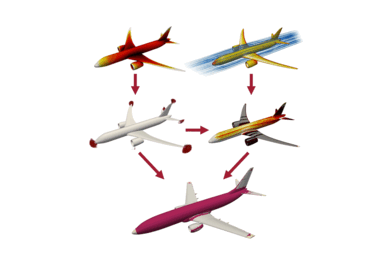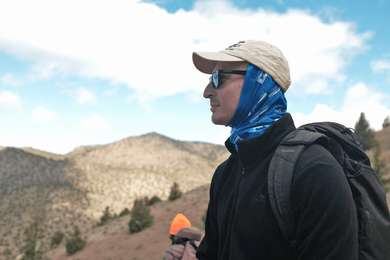Alumni from MIT's System Design and Management program met on campus for the program's first alumni conference, joining current students, industry executives, faculty and staff to learn about and discuss "Leadership in a Complex and Changing Business Environment."
System Design and Management (SDM) co-founder and Dean of Engineering Thomas Magnanti opened the Oct. 25 conference. Industry speakers included Sam Liggero, former vice president of Polaroid; Don Davis, retired CEO of StanleyWorks; and Peter Stern, chief technical officer and co-founder of Datek Online.
Liggero spoke about leadership through crisis in a talk entitled "Leading in White Water." He described how Polaroid dealt with high turnover rates and other challenges, outlining approaches used to develop a critical mass of about 40 mid-level managers who were positive influences throughout the company.
"Their involvement allowed rapid penetration of new ideas throughout the company," he explained. "The more people you can get on board to help make the change happen, the better."
LEADERSHIP PERSPECTIVES
Davis, formerly of StanleyWorks and also a lecturer on leadership at the Leaders for Manufacturing program and the Sloan School for 15 years, shared his perspectives on leadership. Leaders don't choose their followers; followers choose their leaders, he said. He added that the number of effective leadership styles is limitless, so leaders should simply be themselves. Davis added that leadership should be viewed as service or stewardship and also emphasized the need for a balanced life. "Keep fit. Do volunteer work. And cultivate a spiritual dimension in your life," he said.
Thomas Kochan, the George Maverick Bunker Professor of Management, gave an overview of the leadership model developed by Professor Deborah Ancona and a Sloan School team. Although leadership is generally seen as an individual endeavor, "we view it as a distributed process where a community is energized to get separate people working together interdependently," he said.
Kochan expressed concern about how US companies were addressing post-Sept. 11 workplace issues and asked SDM participants for examples--good or bad--from their organizations or others. One alumnus described how the Marriott Corp. polled employees and decided to cut back everyone's hours so that although wages would be reduced, they could all keep their jobs and still get health insurance and other benefits.
"Companies need to prepare a plan for returning to 'normalcy,' but that doesn't necessarily mean going back to the way it was before. We need to reflect on how well we handled things and what lessons we've learned that will help us plan for the future," Kochan said.
Arnoldo Hax, the Alfred P. Sloan Professor of Management, outlined some post-Sept. 11 strategy development ideas. "These tragedies produced an extraordinary change everywhere in this country. We need to ask what it means to business, government and the NGO [nongovernmental organization]."
How an organization changes from being "transaction-centric" to "customer-centric" will be key to success, Haz said. "To receive documented return on investment, you need to know the individual customer. Therefore, 'de-commoditize' your customer, the product and mindset. Don't treat every customer equally. Choose your cus-tomers--don't let them choose you."
Peter Stern of Datek Online, the fourth-largest online financial services firm, said, "We had a lot of good ideas, made a lot of mistakes, then tried to understand why. We were then able to change the thinking that led to the mistakes," he said.
Wisdom usually sounds like platitudes until you've made some mistakes and learned the lessons on your own, Stern said. He spelled out some of these "platitudes," including not measuring success by head count and keeping a business in one room as long as possible, because this makes it easier to coordinate activities and decide who needs to be in what role.
ALUMNI EXPERIENCES
Several SDM alumni met with current students to share their experiences of the program and how it helped them. Steve Klosterman (SDM 2000) said he enrolled in SDM because although he had risen to senior manager in his 12 years at Sun Microsystems, he felt his basic competency in leading across the enterprise might be lacking, especially in nontechnical areas such as accounting and marketing.
Klosterman said while Sloan's business curriculum attracted him to SDM initially, having access to MIT faculty was also valuable. For example, when he applied for a new position at Sun, he spoke extensively with Anna Thorton, a lecturer in mechanical engineering. "Although I never had her as a professor and had just met her previously during a brief hallway conversation, she still spent over two hours with me discussing the opportunity," he said.
While Klosterman didn't get that job, he did get noticed and has since been named the company's director of global manufacturing. He is also forming Sun's first systems engineering group and is now sponsoring Sun's first MIT internship. "Giving back is as rewarding as receiving," he said.
"Holding the first annual SDM alumni conference in Cambridge was a real homecoming for many of our alums. This willingness to give back by telling their stories to the SDM students was testimony to the fact that the SDM experience has made a profound difference in their lives," said Denny Mahoney, director of the SDM Fellows Program.
A version of this article appeared in MIT Tech Talk on November 28, 2001.





